In Pali, “Sati” is Feminine
Imagine my surprise — and delight! — when I read these instructions by Bhikkhu Analayo in his recent book, Satipatthana Meditation: A Practice Guide.
“It can be useful to take into consideration that the word sati in the Pali language is feminine.
“My suggestion would be to relate to sati, to mindfulness, as a feminine quality. In this way, sati can be understood as receptively assimilating with the potential of giving birth to new perspectives.
“Right away from the moment of waking up in the morning our good friend sati can already be there, as if waiting for us. She is ready to accompany us throughout the rest of the day, encouraging us to stay receptive and open, soft and understanding. She never gets upset when we happen to forget her, she is right there with us again.
“Visualizing the practice in terms of a coming back to the presence of a good friend helps to avoid mistaking sati for a forceful type of hyper-attentiveness that requires strained effort in order to be maintained.
“Instead, being in her presence carries the flavors of an open receptivity and a soft alertness to whatever is taking place.”
Time for a Tiny Retreat
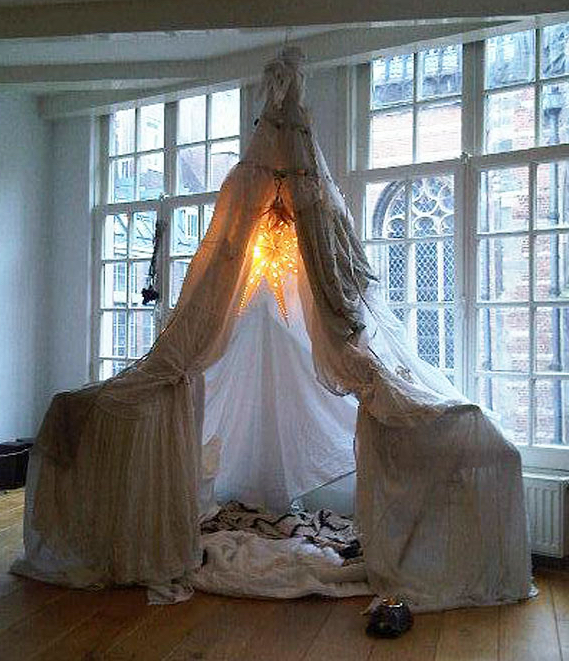 Tomorrow is the last Friday of the month, so instead of writing a post, I’ll be taking a Tiny Retreat.
Tomorrow is the last Friday of the month, so instead of writing a post, I’ll be taking a Tiny Retreat.
What’s a Tiny Retreat?
It’s a half-day I set aside each month to do sitting and walking meditation, just like I would on a regular retreat, except that I do it at home.
But I won’t be doing it alone, because there are others who will also be doing it — at their home — at the same time.
Want to join us?
We’ll be sitting-and-walking tomorrow morning from about 8:30 am to 12:30 pm CST. If you’d like to join in (by meditating however you like, wherever you are, at around the same time), just let me know. You can email me here. Then after we’re all done, I’ll check in with you to see how it went.
This is not such a tiny thing we’re doing here. The Buddha himself said that spiritual friendship is not simply a part of, but is in fact, the whole of the spiritual life.
Head-Phone Retreat!
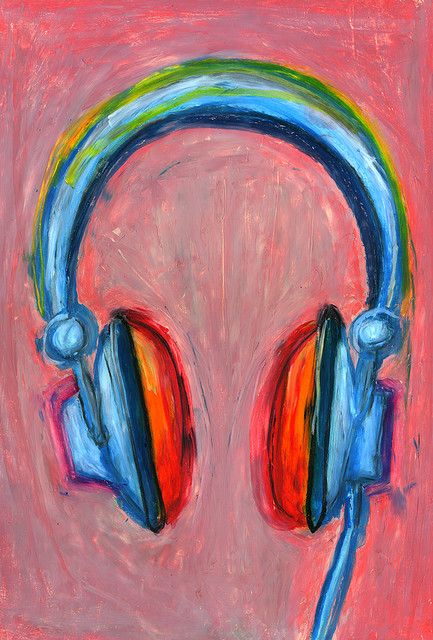 I discovered last night that talks from Ajahn Sucitto’s month-long retreat — going on right now at the Forest Refuge — are starting to be posted on Dharma Seed.
I discovered last night that talks from Ajahn Sucitto’s month-long retreat — going on right now at the Forest Refuge — are starting to be posted on Dharma Seed.
I had tried to attend this retreat, but my name didn’t get drawn. (Admission was by lottery.) The same thing happened to me when I tried to attend this retreat last year…and the year before that, and the year before that, and the year before THAT.
So I decided it’s time for a new plan.
Instead of trying to win the Sucitto retreat lottery, I’m just going to meditate at home — BUT I’M STILL GOING TO SIT HIS RETREAT — because I can listen to the talks on-line.
I’ll call it a head-phone retreat!!!
So I started it last night by listening to this very sweet little opening talk (just 14 minutes long), in which Sucitto explains the practice of alms giving (the ritual offering of a meal to monastics) — which I had never really given much thought to until the first time I attended a retreat where a monk was present, and then was so moved by the care and respect with which it was done, that I found myself welling up with tears.
Here’s what Sucitto says about this in the first talk of the retreat:
“The first thing that’s going to involve us monastics is the alms giving. This is a sign of the reciprocity in which everybody contributes, everybody participates and shares, in a kind of quiet and restrained and careful way. And so it establishes a relationship with an essential quality that has a certain special focusing, even sacred nature, to it.
“Because when we relate to each other, then we have to come out of our self a little bit — meet the other in that uncertain place. And that’s where these valuable qualities of goodwill, self-respect, respect-for-other, and meaning, can occur.
“So the alms giving is not just having a meal. Essentially, the principle is, that the sammanas — “gone-forth people” we call monastics — make themselves available to receive what is offered. So the principle of our mendicant life is we never ask for anything, it’s that we just make ourselves available. That’s the principle of it.
“For those who offer it’s not like: What would you want? What would you like? But: May I offer? And then whatever is offered, we receive it. So that allows a certain kind of openness, and the other people come in as they will. They don’t have to offer anything. If not, well, then OK, maybe next time…
“Essentially, what is most highly regarded is the quality of the offering — the offering gesture — and the smoothness or the clarity, the caring quality that’s imbued in that, rather than the actual nature of the material object.
“As gone-forth people, we place matters of the heart above matters of material form. These matters of the heart are: generosity, sharing, respect, and invitation and offering, rather than demand and obey…”
***
Sucitto then goes on to a few other items, concluding with this lovely bit of instructions for settling in:
“While you’re finding your way into the retreat, let’s make the effort to draw a circle around your life. Keeping it within this particular physical situation. So you can walk around the whole of the retreat facility — that’s including the woodlands — but let’s keep in this particular property, so you’ve got some sense of a boundary.
“And bring all your concerns within that. How you act, how you walk, how you relate to the earth, how you relate to other people, how you relate to your body, and how you relate to the sacred — to these four compass points.
“The earth, nature, how you feel connected to that — you’re in that — a sense of respect and openness to that.
“To your own body — and here I will offer daily qigong to support you in that.
“How you relate to others — the precepts and the whole sense of acting as a group, which is part of that.
“And of course, how you relate to the sacred — your own values, your own virtues, both the moral virtues and the virtues in terms of parami — how you lift them up, how you respect them, how you respect them in others, how you venerate them in these symbolic ways using the shrine — so that’s the one that covers all of it. Everything should be held in that particular domain. So the earth, your body, other people, and the sacred. These are four compass points…”
***
There’s more to this talk. Click here to listen. (Maybe even try a head-phone retreat of your own!)
Already Naked
 “Remembering that you are going to die is the best way I know to avoid the trap of thinking that you have something to lose.
“Remembering that you are going to die is the best way I know to avoid the trap of thinking that you have something to lose.
“You are already naked.
“There’s no reason not to follow your heart.”
— Steve Jobs
***
I’ll be managing Spring Washam’s retreat starting tomorrow, so don’t expect another post until early next week.
If you’d like to come to the retreat, you still can! Even if you haven’t registered.
Walk-ins are welcome and no one will be turned away for lack of funds.
Follow your heart!
Five Remembrances
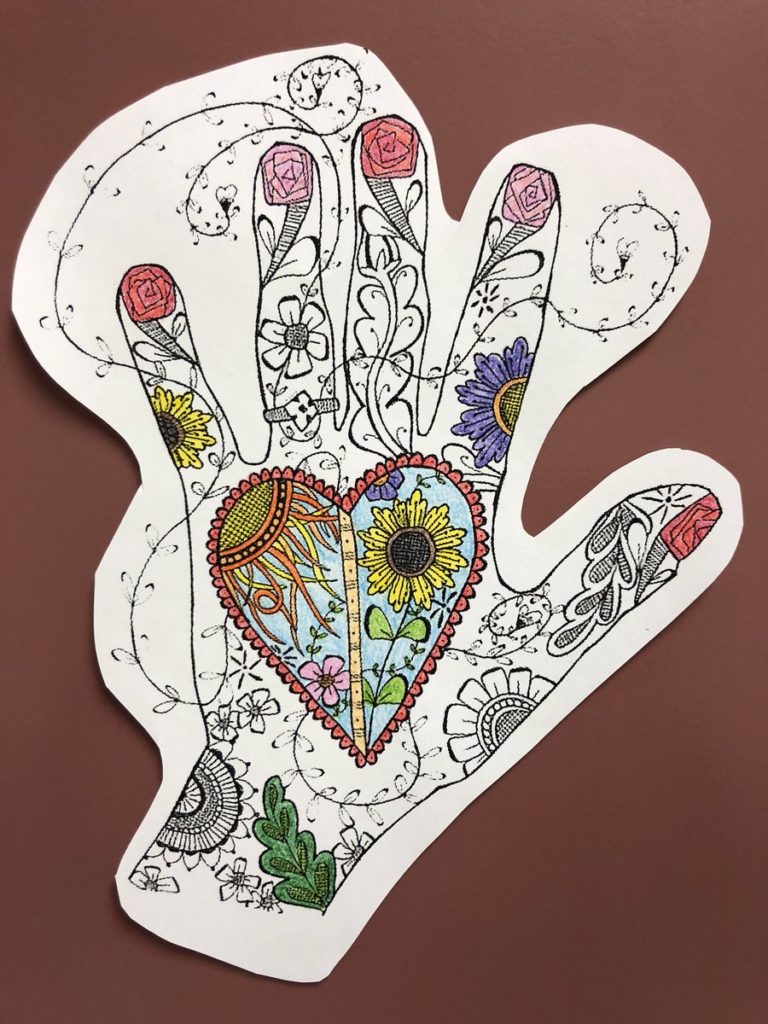 As promised in my talk yesterday at Sunday Sangha, here are the Five Remembrances, which I recite and reflect upon every day as an integral part of my practice:
As promised in my talk yesterday at Sunday Sangha, here are the Five Remembrances, which I recite and reflect upon every day as an integral part of my practice:
* I am of the nature to grow old; there is no way to escape growing old.
* I am of the nature to have ill-health; there is no way to escape having ill-health.
* I am of the nature to die; there is no way to escape death.
* All that is dear to me and everyone I love are of the nature to change; there is no way to escape being separated from them.
* My actions are my only true belongings. I cannot escape the consequences of my actions. My actions are the womb from which I am born. Whatever I may do, for good or for ill, to that I will fall heir.
Today I Took a Tiny Retreat
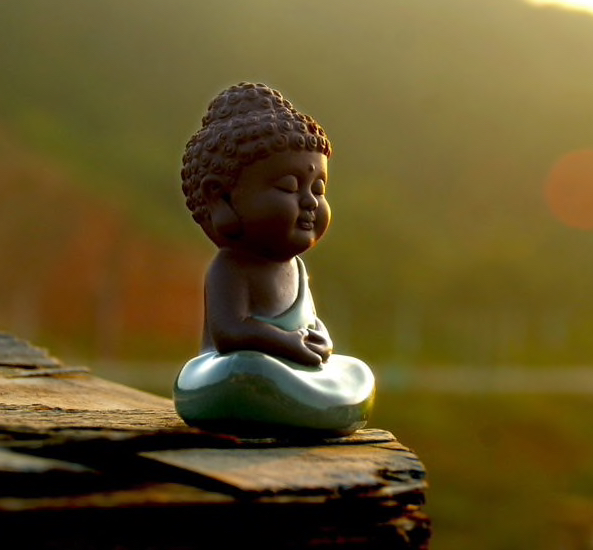 What’s a Tiny Retreat?
What’s a Tiny Retreat?
Read about it here.
What to take one with me?
Learn more here.
Bring Light
FULL MOON REFLECTION from Forest Sangha:
Transformation
One who transforms old and heedless ways
into fresh and wholesome acts
brings light into the world
like the moon freed from clouds.
— Dhammapada v. 173
“It would be a great pity if we viewed all our ‘old and heedless ways’ merely as troublesome tendencies that we had to get rid of. Just as recycling of material objects is sensibly recognized as more skilful than casually throwing things away, likewise a lot of wisdom and goodness can be found in that which previously caused us to suffer.
“Arrogance is always offensive, but once purified and no longer held as who and what we are, can be transformed into self-confidence.
“Stubbornness is always unattractive, but once purified and not seen as ‘self’, can manifest as resolute determination.”
Heart Felt
Last night I was watching the video of Phillip Moffitt leading the Oct 1 session of Monday Night at Spirit Rock and I was so struck by his use of the phrase “heart-felt practice” (which I don’t think I’ve ever heard him use before), that I had to stop the tape and go back and write it down, exactly as he had said it.
Here it is in context. (It was at about the half-way point in the meditation instructions.)
“Staying with the breath….allow the breath to also breathe through your heart. That means to relax the heart as you relax the mind. Softening the heart. Just as you are softening the mind as you are staying with the object of breath or body. Just invite… See what happens if you invite the heart to relax a little. Give a little smile to the heart. Just even the slightest movement at the corner of the lips. It may change the breath in some way.
“This is a heart-felt practice. Even though we’re developing concentration, the heart is not excluded. It’s mind/heart: ‘Bodhicitta.’
“Surrender even more deeply to knowing breath. Feeling it at the nostrils, or in the chest, or in the belly. Or you may experience the breath as a wave — in and out — like the tide at the shoreline. Intimate… Softening into… Heart-receiving…
“If your mind is called away, notice what it is that has pulled you. Is it a memory, a plan, a fantasy, a comment that you’re making, a complaint… Just be with that for a moment and acknowledge whatever it is.
“You’re willing to receive it — but not now. Having noticed this, acknowledged it (very quickly, this isn’t a long process) and then go back to the breath.
“The breath that is breathing with this soft heart. This body-breath. This soft heart.”
I Wish To Be Free….
 At Sunday Sangha yesterday I talked about a resolve I have made… an aspiration, you could call it… to which I am intentionally, repeatedly turning:
At Sunday Sangha yesterday I talked about a resolve I have made… an aspiration, you could call it… to which I am intentionally, repeatedly turning:
I wish to be free of this closed heart.
(I chose those words from a talk Phillip Moffitt gave at the Concentration Retreat I attended in August.) He said:
“We’re not practicing results, we’re practicing practice…. We are inclining the heart toward our deepest values.
“It can be just a slight turning of the heart. Like on an ocean liner, where the slight turning of the wheel of that big ship takes you to a whole different place.
“So the sense of the turning does not have to be dramatic because we’re setting this larger aspiration that’s not just for the immediate feeling.
“When we do that, we’ve moved the heart a little. We’ve said that this is our aspiration. We’ve confirmed that this is how we wish to be:
“I wish to be free of this closed heart.
“I may not be able to have an open heart right now. I’m not claiming that I can right now. But I can claim that it’s a value. Even though I’m not feeling the emotion of it.
“We often don’t feel our values in the moment. But we stay true to our values because our wisdom — as well as our compassion — has led us to understand that these are the appropriate values.
“So the wholesomeness of the practice, the skillful means of it, is what we’re learning, what we’re practicing.
“The results will come from all of the moments of karmic seeds of doing the practice.
“It’ll take whatever form, on whatever timetable it’s going to take. We don’t have to be responsible for that. And it’s such a relief — to not have to be responsible. We’re just attuning ourselves to our aspiration — our values — what we intend, moment-to-moment.
“We’re serious about it. We’re sincere. We’re not ‘shining ourselves on.’ But we’re not delivering. We’re not resulting.
“We’re practicing.”
***
That, I can do.
How Sucitto Practices
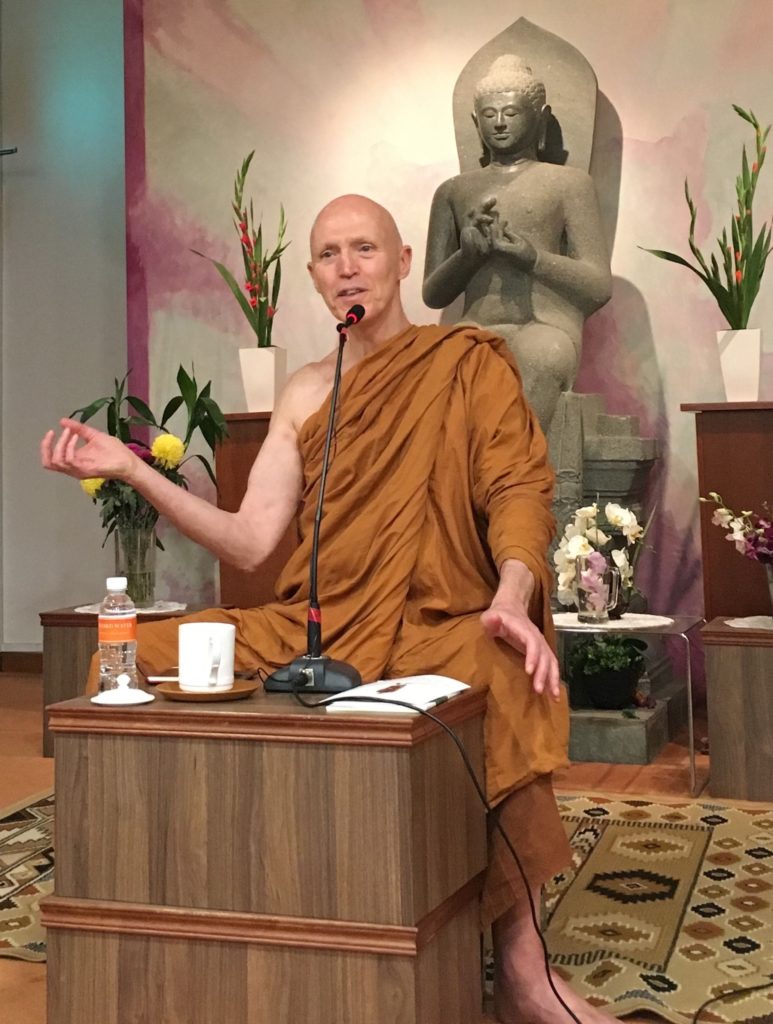 At the end of the retreat in Madison, Ajahn Sucitto gave this wonderful little gem of a talk called, Closing Exhortation: Being is First; Doing is Second.
At the end of the retreat in Madison, Ajahn Sucitto gave this wonderful little gem of a talk called, Closing Exhortation: Being is First; Doing is Second.
Here’s an excerpt:
“….Drop into the center of your reactivity. That’s where you’re supposed to be. You drop into — not your comfort zone — but right into the center of your reactivity. In there — that’s authentic, isn’t it. Because this is the thing you have to deal with. The reactivity.
“Don’t worry about it. Don’t start complaining about how reactive you are, or feeling hopeless, just go right to the center of your being, aware of your reactivity.
“I suggest that you can do this in ten seconds. Doesn’t mean you’ve got an answer, doesn’t mean you’re not reactive — it just means you can drop into that… You don’t need a lot of training, really, to just go to awareness of the compulsiveness, the reactivity.
“The real deep training is the staying just a little bit longer in that awareness. Live just a little bit longer against all the pressure. Could be just another 5 seconds, even. Could be a little bit longer. Can you bear with that? Can you breathe out into that?
“And then start with what I call ‘guesswork.’ The doing. Which is just opening, widening….
“Be prepared to get it wrong. It doesn’t matter. Doing is always guesswork. You get five out of ten right – that’s good. Six out of ten, three out of ten… But at least what you’re doing is you’re referring to awakening intelligence, rather than indoctrinated ‘education’. Rather than programming….
“So check into this reactivity, and be in the center of one’s field of blame and all that, the lack of confidence, and the desire… Then awakening intelligence can start to operate: It’s all right. That’s OK. Just take your time. Just move out. Let’s see how it goes. I’m with you all the time.
“Awakening intelligence – you’re not going to lose that one. Once you’ve touched into it, it’s going to be with you all the time.
“Just take the time to drop into it. Take the time to knock on its door. It’s going to come out. It’s natural. If you don’t ask for it, you’re not going to get it. If you don’t tap on the door, it can’t answer. If you’re too busy doing something else, doing busy stuff, driving yourself nuts – it’s not going to answer the door, because you haven’t asked it.
“And the asking is in the center of the reactivity…the fearfulness and the doubt. Be aware of that and then: what’s important now?Just take a breath….
“See what is good. Follow the beautiful. Follow the good. Kalyana — the Beautiful, the Truthful, the Good. Follow that. See where it goes. What else can you do?
“Being is first; doing is second.
“I can’t get it simpler than that, really. It has to be simple. There’s so much that you know, so much you can learn, so much other stuff that you can pick up, goodies in meditation, Dhamma… I don’t need to run through all that again. You can get all that. So, you know, my little bit is to try to perhaps touch things in strange ways and maybe make things in some ways more direct:
“Being is the first thing; doing is second. It doesn’t take that long to do that. And then following it is a curious path and strangeness.
“We are the unnamable, moving through the unimaginable. There is no finality. You crave it, but there isn’t one.
“The unnamable moving through the unimaginable. What did you expect? [laughter] Crystal clear explanations? [more laughter]”
“So take time to check in with that.
“These are sort of daily life things. You have the ‘occasionals’, where you really check in with your refuges and so forth, your assets, and then you have the, what I call the ‘on-going.’
“So this is something that I am suggesting throughout the day. You can take ten seconds. Ten second pauses. Ten second moments. After breakfast. When you park the car. Before you jump to the next thing, make these little break points: Pause…Where’s it rolling now?…Where is it going now?…
“If you can build those in during the day…ten times a day…it’s going to check some of these momentum wheels of our conditioning.
“So this is how I practice.
“I’ve been really winging it for the last fifty years or so. [laughter]…. Yeah….. And, uh, when I’ve let myself get distracted, you know, and start believing in fixed things and finalities and systems and structures…get distracted by all of that… Then there is something to feel, which is definitely…. We all can do this. Awakening intelligence is there, possible for us. What else is going to get you through?
[long pause]
“You know, sometime when I pause, people think it’s that I’m thinking of something brilliant to say…it’s not. I’ve just stopped. [laughter] It happens quite a bit. [more laughter]
“So I’ll leave you with that, for now….with my blessings.”
***
This is only about half the talk, and it’s been edited and condensed. I highly recommend listening to the whole thing. (It’s only 27 minutes!!!) Click here.



